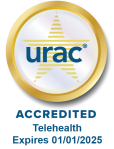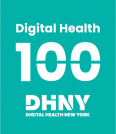UCM’s Virtual ER is here to help you navigate through all things COVID-19
A virtual consultation with an emergency medical provider means you get the right care, at the right time, at the right place.
What a few months it has been — the novel coronavirus changed so many things about the way we live, work, and interact with our friends and family. As the virus presented a concerning risk of community spread, it was safer to stay home.
For many patients, a change was turning to telehealth for medical care.Our team of emergency medical providers, including Care Coordinators, Nurse Practitioners, Physician Assistants and ER physicians use a virtual connection to quickly triage patients, treat as needed, or direct them to the appropriate care. UCM’s Virtual ER saw a significant increase in calls ranging from medical emergencies such as broken bones and minor cuts to concerns related to COVID-19.
As we emerge from stay-at-home orders, our Virtual ER team remains committed to ensuring patients receive the right care, at the right time, at the right place. After the onset of COVID-19, the ‘new normal’ of healthcare includes telehealth — and we are honored to care for you and your family through our unique virtual care offering. We are here for you around the clock every day of the year.We are sharing with you some important information about COVID-19, such as the list of symptoms to watch for, how to monitor yourself from home, and more.
If you have COVID-19 symptoms
Treatments for symptomatic patients focus on monitoring and conservative management (rest, fluids, fever control) while isolating for 10 days or until the patient has been 72 hours fever free with improving symptoms (this is 72 hours without medications used for fever control). In addition, the use of zinc, vitamins C and D supplements, as well as Albuterol inhalers for shortness of breath and antibiotic therapy for associated pneumonia are all part of the accepted guidelines for care.According to the National Institute of Health (NIH), there are no formal recommendations for safe/effective treatment specifically tailored to COVID-19 due to insufficient data. It is important to be in contact with a medical provider during this time in order for appropriate monitoring and follow-on care, if needed.
Why does COVID-19 harm the human body like it does?
COVID-19 is a rapidly mutating virus that our bodies are inherently excellent at fighting against. Based on genetic makeup and our existing medical problems and our own individual immune systems, the virus interacts with each of us in different ways, and to varying degrees of severity. COVID-19 affects all age groups, however, we know it is worse in patients with Chronic Obstructive Pulmonary Disease (COPD), patients above the age of 60, and patients with diabetes, hypertension, lung disease, cancer, heart disease, or kidney disease. COVID-19 is less likely in school-age children due to their repeated contact with cold-like coronaviruses similar in structure to the COVID-19 virus. In recent days, an outbreak of inflammatory symptoms in children have been linked to COVID-19. If you have concerns, contact us right away.






